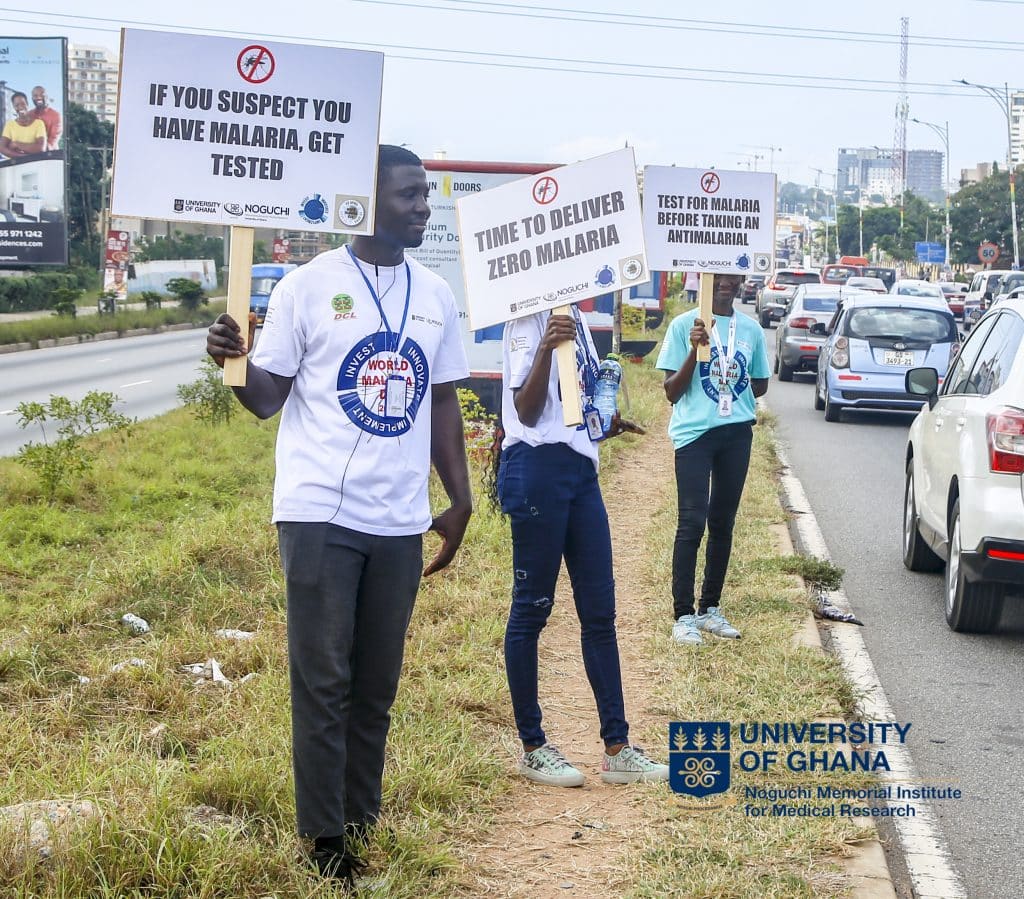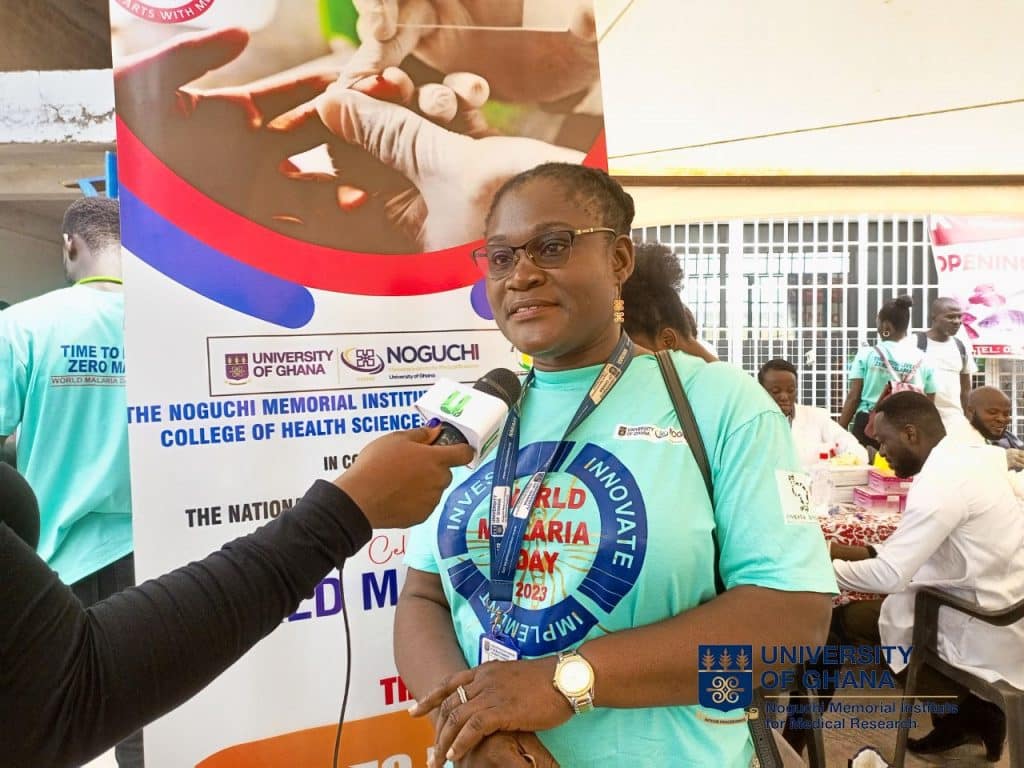World Malaria Day is observed annually across the globe on 25 April, to bring global attention to the efforts being made to bring an end to malaria, and encourage action to reduce suffering and death from the disease.
Embracing this year’s theme: ‘Time to Deliver Zero Malaria: Invest, Innovate, Implement’, the Institute observed the day with malaria education outreach on the streets of Okponglo in the Ayawaso West Municipal District and Shiashie in the Accra Metropolitan District.

Malaria education along the streets of Okponglo and Shiashie
The activities sought to create awareness about malaria and to empower people to take control of the breeding mosquitoes in their backyard.
Earlier, on 20th April, some departments involved in malaria research at the Institute; Department of Immunology, Department of Epidemiology and the Department of Parasitology with support from Inqaba Biotec, the National Malaria Elimination Programme and DCL Laboratory Products organized free malaria screening at the Madina Lorry Station within the La Nkwantanang Madina Municipal District.
The exercise formed part of the Institute’s response to the global call to invest in malaria control, innovate new tools and implement sustainable approaches to deliver zero malaria.

Prof. Linda Eva Amoah, Associate Professor of Immunology, NMIMR
Prof. Linda Eva Amoah, Associate Professor of Immunology at the Institute explained that the exercise was a good step in the right direction. Adding that “this exercise is to spread the word and educate more people on malaria prevention, especially parents to make sure they protect themselves and their children. Creating awareness and providing information is a means by which we can reduce malaria transmission,” Prof. Amoah stated.
Prof. Amoah also emphasized that the symptoms of the majority of illnesses are similar to those of malaria, and urged the public to routinely check for the parasite whenever they experience any malaria symptoms and seek appropriate medical treatment if they are positive.

Malaria screening at Madina Lorry Station
Some beneficiaries explained that the screening exercise by the Institute was a worthy cause. According to them, the nature of their work usually do not allow them visit the health facility often as they should which mostly make them vulnerable to many diseases.

A trader receiving malaria screening
“Due to the nature of our work, sometimes, a year goes by and most of us have not been to the hospital even to check for our health status especially the traders. This is sometimes as a result of insufficient fund. This cause by the Institute is a worthy and thoughtful one. We are thankful to them for their good works. We encourage other institutions who are in good position to do same to help the needy”, a beneficiary said.

Group photograph of Prof. Eva Amoah together with the team

